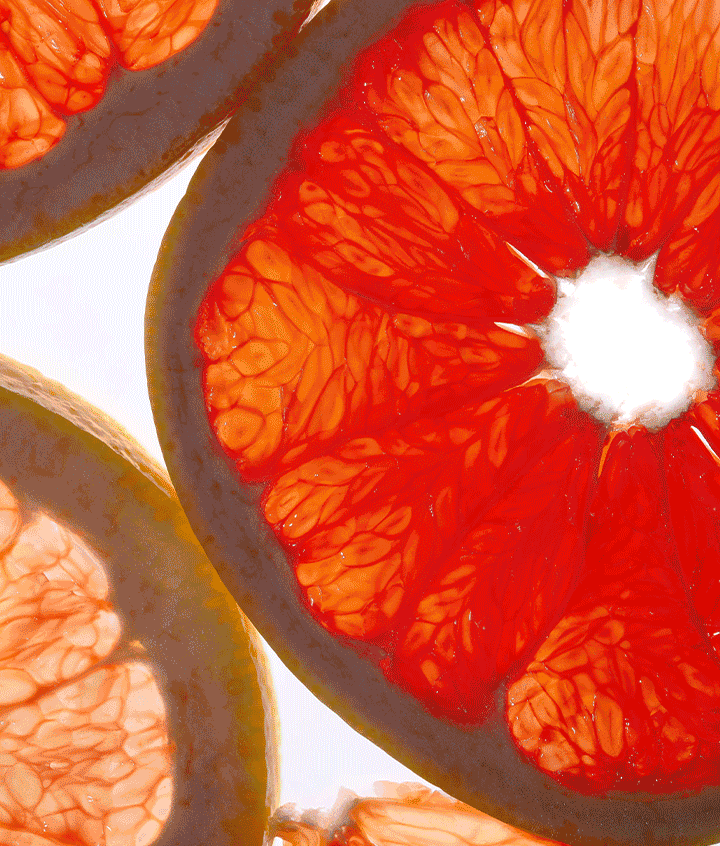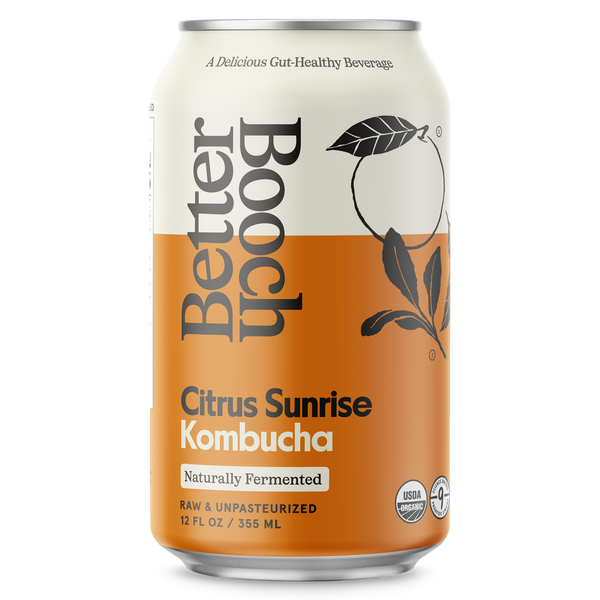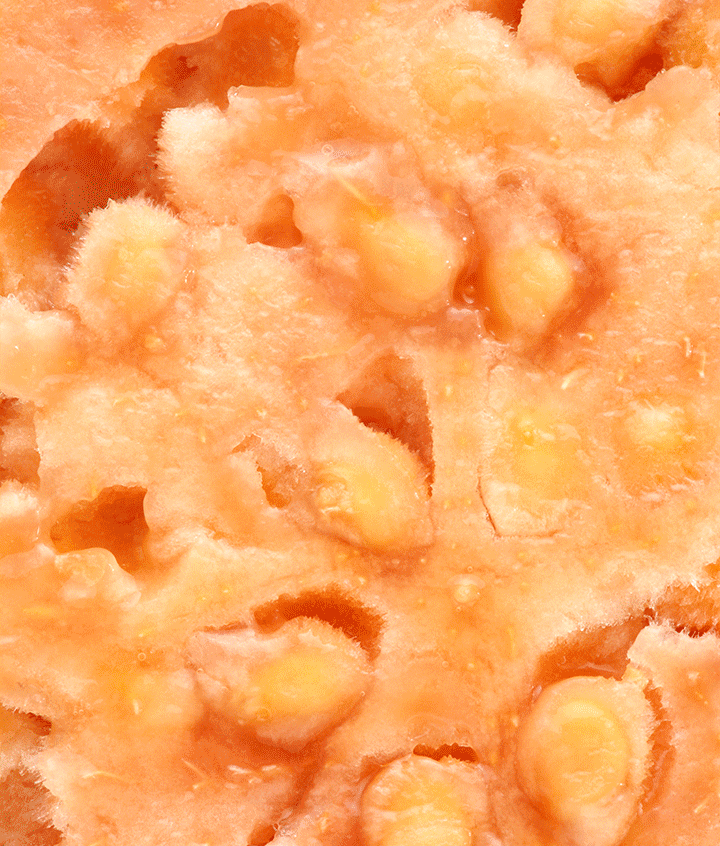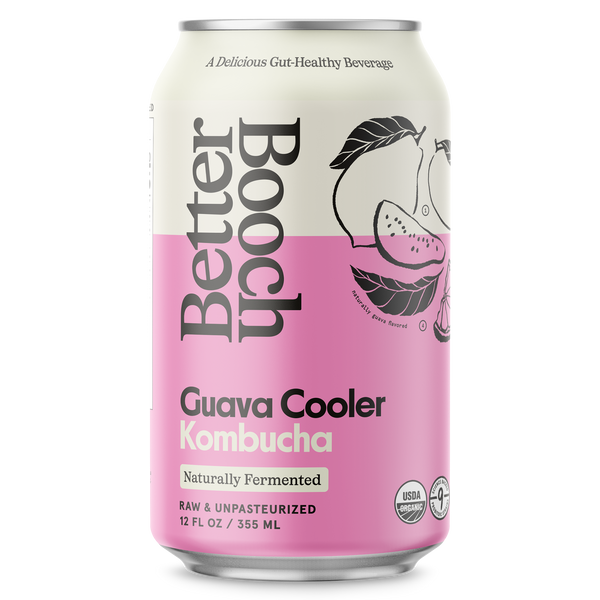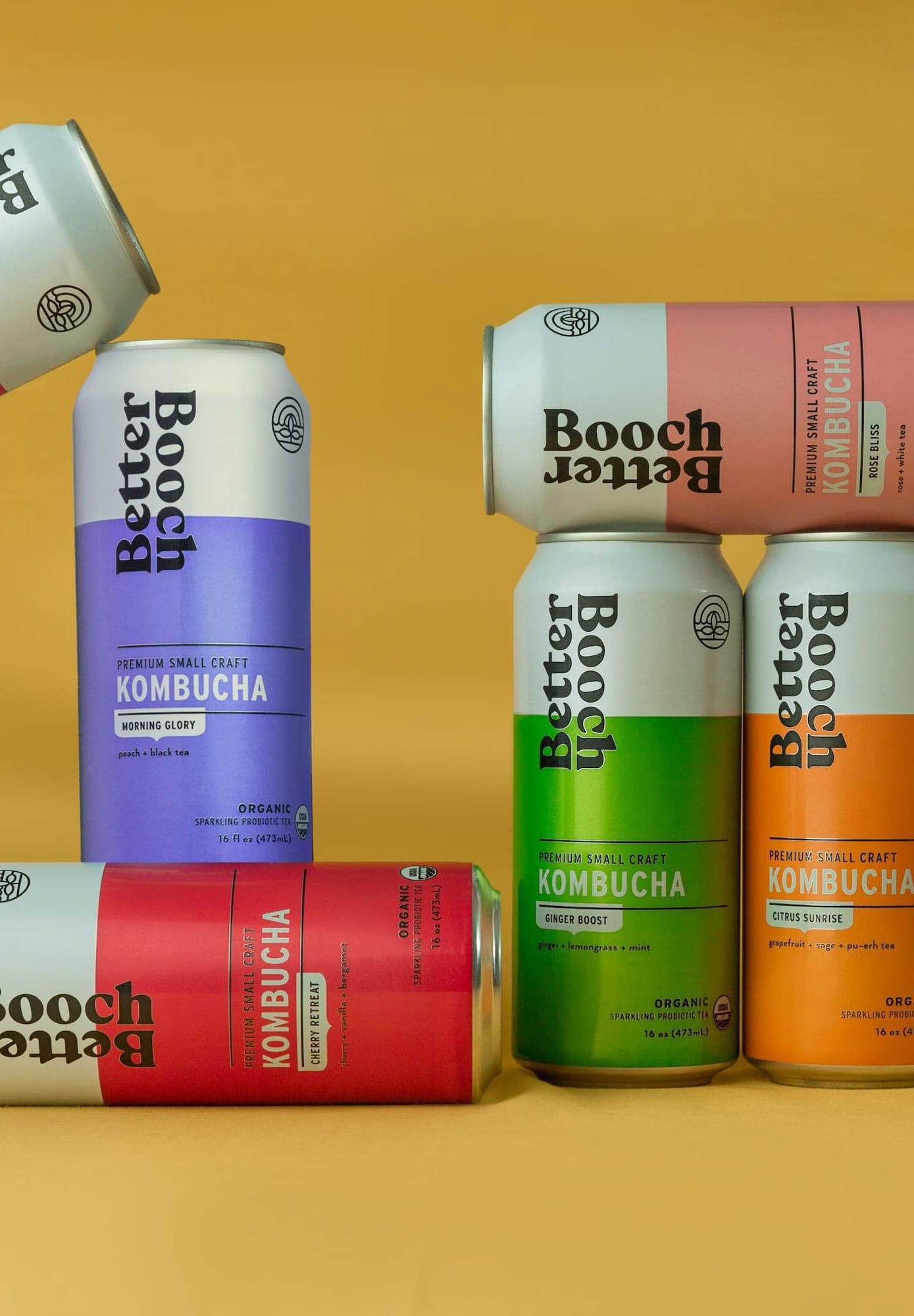Conversations like these are what we’re all about at Better Booch. We had the absolute pleasure of chatting with Behzad Varamini, Ph.D., a professor of nutritional sciences and physiology at Biola University with a doctorate in human nutrition from Cornell University. He was kind enough to let us pick his brain about all things nutrition, gut health, aging, and enhancing our health. We’re so glad we took notes and we’re able to share them with you because, even though we’ve been studying this space for a while, there were so many new things we learned from Behzad.
What is your philosophy when it comes to food?
Food is a gift. Food is made and meant to be enjoyed and eaten in community. For the longest time, we’ve known where our food has come from. We nurtured and harvested the land for our food and it’s only recently, because of technology and industrialization, that we’ve been able to (in a good way) get food in and out of season. But we’ve distanced ourselves from food manufacturing and the development process. For those of us who are able to grow food, it helps develop a rich appreciation and connection to our bodies and what we put into our bodies.
My philosophy is food is meant to be enjoyed.
We talk about food and often people have feelings of fear, guilt, or shame and that makes sense because we have a contentious relationship with food. We can have views and opinions that are very strong about food, it’s often something that divides people. But if you look at ancient texts like that from Plato or Socretes, they met around the table, they broke bread, and shared food together. Food brought people together and I think we need to get back to that.
When it comes to getting nutrients from food vs taking supplements, is one better than the other?
We have evolved as a race to eat and be nourished by foods that primarily grow from the earth or walk along the earth – that’s how we were meant to be nourished. And if you look at nutrients and how they are found in foods, whether it’s vitamins or minerals, they’re found in this environment where they’re not isolated – in the science community we sometimes call this a food matrix. So vitamins and minerals are found bound to other components in foods like proteins, and enzymes. These other factors help nutrients to be absorbed.
What’s very different about vitamins and minerals in supplement form is that they’re not from plants and animals that grew in nature. They’re from chemical reactions and they’re made in mass. For example, there’s a difference biologically that we’ve been able to measure between vitamin c from food and vitamin c that is synthetic. Even though chemically they have the same structure, we know that when we eat vitamin c from fruits or vegetables it’s a different ballgame from synthetic. In the 1990’s there was a study that compared the antioxidant capacity in vitamin c from foods vs supplements and the main thing vitamin c does is it scavenges up free radicals.
5mg of Vitamin C from an apple has the same antioxidant capacity as 1500mg of synthetic Vitamin C.
There is a lot of evidence that shows the effects are comparable, if not more effective, when deriving nutrients from food vs supplements.
Is it true that our bodies can only absorb nutrients up to a certain threshold?
Our body has receptors in the gut that take up these vitamins and it’s like a game of musical chairs. If you have more vitamins than receptors then the vitamin compounds aren’t absorbed. Often these mega doses of nutrients that have thousands of milligrams don’t exist in nature they only exist in supplements. For instance, a supplement with 5000% of your daily value of vitamin c is equivalent to a pile of oranges that you would never eat in a given day but we put that in a pill. In many cases there may not be a negative effect to that (although there are some cases where there is toxicity of some of the fat soluble vitamins) but what will happen is you’ll not absorb all of those nutrients and you’ll have a fall sense of security that you won’t get sick. Whereas vitamin c from food is absorbed in the way nature intended it to be. But you also have all of these other compounds in fruits and vegetables that work with vitamin c to enhance its effects and offer protection against cold viruses and strengthening immunity.
Okay, so the body has receptors that are able to absorb nutrients and if you don’t have enough receptors then you’re not going to absorb past the maximum amount. Is it possible to get more receptors or eat in a way that helps the receptors be more open? Is it possible to enhance nutrient absorption?
Scientists for a long time have been trying to understand these systems so they can discover how to manipulate them. Now that we know vitamins bind to certain receptors or proteins, now we improve someone’s vitamin and nutrient status by enhancing absorption. One way to do that is to increase the number of receptors.The tricky thing about this is that the body is hardwired genetically to have a certain amount of receptors.
But there are other things we can do to enhance absorption. A lot of folks are iron deficient, women more so than men because of their physiology. People take a lot of iron supplements to counter their lack or iron (which can lead to iron deficiency anemia which can lead to being tired, fatigued, etc). One thing about iron as it exists in nature, is it exists with other chemicals that enhance its absorption. Whether iron is synthetic or natural, it absorbs best in an environment with other acids, specifically vitamin c. When you take an iron supplement it doesn’t necessarily instruct you to take the supplement with a glass of orange juice, it may just suggest to take it with food or water. Depending on what you’re eating the iron supplement with, you’re really going to affect the amount that your body absorbs. These are the things that show the limitations of individual supplements versus eating foods together that can enhance each other’s effect.
It’s not about one thing, it’s important to think about the big picture and how it all works together in the ecosystem of the body.
Can changing what we eat and how affect more than just the size and shape of our bodies? How can eating affect overall health?
Eating for weight and body maintenance is important because we know that excess weight can lead to problems down the line like diabetes, obesity, and heart disease. That being said, there is so much more to what we eat than just our weight. I like to use the example of high blood pressure, which is more likely to happen in those ages 50+. About ⅓ of Americans above the age of 40 have hypertension or high blood pressure, so it’s a real problem that’s incredibly common. A lot of us have it and it’s not diagnosed – especially men above the age 40.
In his late 50s/early 60s, my dad had high blood pressure and he was taking medicine in small doses for it. At the time, I was working on my Ph.D. in nutrition and reading all of these studies. I was seeing all of these studies about flax seeds, beets, garlic, and I was repeatedly seeing whole natural compounds in foods reducing blood pressure in these clinical trials at levels that are similar to beta-blockers (the main medicine for blood pressure). I sent my dad some of this stuff to see how it affected him over the course of a few months. He went back to the doctor and they were shocked because his blood pressure was below 120/80 which hadn’t happened to him in decades. That got him off the medication he had been taking for more than 10 years.
It goes to show that foods have this power to improve physiology in a measurable way that reduces the burden of disease.
You studied aging at the University of Pennsylvania, what are the most common signs of aging in the body? And how do you define aging in the body?
We can’t slow down or stop time, but there are biological measurements that can tell us how we’re doing and aging plays a role in that. There are a lot of things that happen as we age, our connective tissues, our joints, our blood vessels, they become more rigid. So we have creaks and pains that we didn’t normally have when we wake up or have been sedentary for a long period of time. Our hearts, kidneys, and lungs, lose capacity. It’s thought that the heart loses 1%-2% of pumping capacity after the age of 30, which is already scary for those of us over 30. We’ve all noticed that decreased lung capacity after going up a few flights of stairs in our 30s. There are outward signs which are a manifestation of what’s happening in our bodies.
Inside of our cells we have this slow accumulation of a few different types of products, one of those is called free radicals. When our bodies undergo normal metabolism, our mitochondria will generate free radicals which are chemical compounds that bounce around the cell and they do no good. The free radicals run into the DNA, lipids, proteins and they damage them. That happens progressively over a long period of time. It even happens when we’re younger, it’s just that when we’re younger our body can fight those free radicals better. So you don’t necessarily make more free radicals as you age but your defense mechanisms are weakened.
Why do we have better defense mechanisms when we’re younger than when we’re older?
It sounds kind of morbid but as you age, everything sort of gets a little more inefficient, weaker, and gets worse physically. Other things get better mentally, emotionally, and spiritually, but on a physical level we deteriorate very slowly. The accumulation of these free radicals normally when we’re young are fought by enzymes and proteins we have encoded in our DNA. As we age, our DNA is not as good at making those enzymes and proteins that scavenge free radicals. At the ends of those DNA molecules we have telomeres. If you think of a shoelace, the ends have caps that prevent the shoelace from coming apart, as we age every time our cells divide, those telomeres naturally shorten. As they shorten, our DNA is more prone to damage from harmful things that accumulate in our bodies. As the DNA starts to get less and less “good” at defending itself, the telomeres shorten. Then we start to have mutations and inefficiencies in the body where we can’t fight those free radicals in the same way we could when we were younger. There’s a lot that goes into it but that’s the free radical theory of aging. Antioxidants become important as we get older to assist those telomeres in doing their job.


What are some of the things that can cause us to age more quickly?
We know some of the things that can cause us to age, like UV light, smoking, being sedentary, and stress. There’s even a lot of studies from a psychological or sociological point of view where they look at people who later in their life had strong bonds in their community and they saw that those people lived 8-12 years longer than people who were in isolation.
As much as I think nutrition is important, we are holistic beings.
If we don’t have community and strong bonds as we get older, we sort of have less of a reason to live and are less resistant when disease comes up. There is this nutritional and psychological element as well. Of course, things like poor diet and being sedentary can accelerate aging. And when we say accelerating aging, what we mean is diseases that sometimes we don’t see until our 60’s can happen earlier and earlier. The earlier we have those diseases the less our lifespan will be.
Besides the generic advice like diet and exercise, when it comes to aging what are some of the things you’ve found in your work that would slow down the aging process?
When I was studying aging at the University of Pennsylvania, we were looking at specific compounds that were naturally-occurring that slow down aging or extend life in mice. The compound that we were working on resveratrol – can now be bought over the counter. It’s essentially a compound from the skin of grapes and grape leaves. When it was given to mice on a high fat diet (mimicking the fast food type diet) these mice lived 30-40% longer when they were given this compound vs when they weren’t given this compound. There was a lot of promise around this compound initially in the early 2000’s. Over time there were complications of the studies. What we discovered was that the compound was mimicking fasting in the mice cells. When the compound was given to mice, even though the mice were eating a lot of high fat food, it looked like these mice were fasting if you looked at their tissues, muscles, and cells. It almost looked like they were in this semi-starvation state. The compound mimics fasting.
We’ve known for a long time that when we abstain from foods for periods of time, our physiological and genetic program shifts. We shift to a mode that’s meant for survival. Probably because our earliest ancestors were hunting out in the wild, not eating as regularly as we do today. They needed biological mechanisms to stay alive throughout these long periods of fasting and what those mechanisms did was they slowed down physiology, which makes less reactive oxygen species and their bodies would prefer to burn fat. It’s not to say that these ancestors lived longer, they often died in their 30s, 40s, and 50s because some wild animal might eat them or they might have gotten a bacterial infection. But the fasting really helped humans survive and thrive in times that were nutrient limiting. So this resveratrol compound activated the same physiological mechanisms as fasting.
The compound just by itself was not proven to be as effective as good, old fashioned fasting.
Is it true that fasting can help your immune system?
One of the really interesting things about fasting is it gives our cells a break. Our cells are in one of two spaces. They’re either taking in nutrients because we just ate a meal, storing some of those nutrients, or burning those nutrients. Or they’re in a state of rejuvenation or rebuilding. So this study in mice that came out shortly after the resveratrol study on fasting, had 3 different groups. One mouse group had food round-the-clock, and mice like us eat for about 12 hours, they had access to food 24/7. There was another group of mice that was only given access to food for 8 hours. The final group of mice was given food every 4 hours.
What was interesting was the mice learned to eat about the same number of calories, so even if they were only given food for 4 hours, they engorged themselves with an entire day’s worth of food. When they looked at these mice over time all of the measures of health, aging, free radicals, that mark health and aging were much less pronounced in the 4 hour fasted group. The same amount of calories given over a narrower length of time gave the body a longer period of time for repair and maintenance mechanisms which cannot be active when you are taking in calories.
Even the immune system will make white blood cells at an extremely fast rate in a fasted state whereas in a continuous state of nutrient intake, we make white blood cells much more slowly.
Fasting can really kick start our immune system and other systems in our body – even on an 8 hour cycle of eating and 16 hours fasting. A great way to start fasting would be liquids until lunch and having our last meal at or before 8pm so we get a 16 hour period of fasting. If we have to break and have a snack at 10pm, no biggie! But if we can get 14-16 hours of fasting in, then that’s a great way to play around with intermittent fasting. These studies have been done in humans too and fasting can reduce blood pressure, oxidative stress, clear up skin, there’s a lot of info on fasting. We might not see the results after one day but over the course of a few weeks. If you’re healthy and you don’t need medical supervision you can fast and it can be a really healthy exercise to incorporate.
Can you walk us through why having a healthy gut is important? Gut health can seem like buzzwords these days but what’s missing is the why behind the buzz – why should we care?
The gut is so critical and for so long it has been neglected. In a way, I’m glad there is so much buzz around the gut but like anything else we have to take everything with a grain of salt. The gut is one part of this whole integrated system that we have inherited from our parents with our wonderful bodies. The gut is important for a number of reasons. It’s where nutrients come in. A healthy gut will promote and enhance the absorption of nutrients. The bacteria that help make up that gut are actually responsible for breaking down nutrients that we can’t break down with our own cells. Having a healthy gut promotes healthy gut bacterial populations, which helps break down nutrients we can then absorb better. Our gut makes up so much of our immune system.
About 70-80% of our immune system’s cells live in our gut.
So there’s a really strong connection between our white blood cells and what we eat. There’s a lot of things happening at the level of the gut with our immune system and connecting to the brain because there are so many neurons going from the brain to the gut. The gut is really interacting with so many different systems of the body which makes it really important and central to overall health.
Aren’t there certain neurotransmitters in the gut that help carry information from the digestive tract to your brain?
I’ve read both 75% and 90% of the serotonin in the body is made in the gut. We have some really important connections between our gut and our brain directly. The brain has these 12 really important nerves called cranial nerves. They are incredibly important. One goes to the gut and it’s the largest one, called the vagus nerve. So the largest nerve (second to the spinal cord) goes right to the gut.
We have this whole nervous system called the enteric nervous system that is made up of more neurons that are found in the spinal cord that just control and coordinate the movements of the gut and they talk two ways. The brain talks to the gut and the gut talks to the brain. We’ve all felt butterflies or nauseous when nervous and that’s the brain talking to the gut. And the other way around, when we have gastrointestinal disturbances and we’re unhealthy, that affects our mood, memory, and brain. Because a lot of neurotransmitters are originally made in the gut.
Wow, that’s amazing. So with that knowledge, how can we support our gut health?
Like a lot of things, I think supporting a healthy gut comes through this holistic approach. There’s some really interesting studies recently that show that getting the proper amount of sleep can promote a healthy gut. Part of me is like that’s interesting, while part of me is like of course. Of course we need to sleep. As we sleep, our cells rejuvenate themselves and make new proteins and membranes. They strengthen and reinforce themselves. If we’re not sleeping they don’t have the ability to do that. From a nutrition standpoint, the foods that we eat nourish not only all of the cells of our body but they nourish our gut. Our guts like specific foods and are nourished particularly by specific foods like fiber, soluble and insoluble fibers. These are foods our gut needs for general health. They’re not only for our gut’s cells but they also promote good bacteria and their growth in the gut. When the good bacteria outnumber the bad, that’s the goal.
What’s the difference between a probiotic supplement and getting probiotics from something fermented like kombucha or kimchi, etc?
There is a lot of regulation around the claims you can make about probiotics and the only recognized probiotics by the FDA are lactobacillus, but of course there are billions of other strains and varieties. Is it effective to take a supplement with lactobacillus and is it more or less effective than getting it from probiotic foods?
In some ways, it’s similar but we’re constantly learning more about probiotics. As far as what we know about supplements vs foods, the reason why the certain lactobacillus strain has been so popular and has the stamp of approval from the FDA is because it was one of the first strains that was well studied in human trials. The FDA is looking for a few things, the main thing is safety so what’s been shown with this strain is that it’s safe, even at really high doses. And the second thing they’re looking for, and the burden of proof isn’t quite high, is efficacy. A lot of these probiotic trials look at bloating, gastrointestinal cramping, discomfort, and digestion. This lactobacillus strain has been promising whereas others may have not been as promising. I think the mistake that we made with probiotics is we’ve rushed in and focused on individual strains. When you buy fruits and vegetables, even if you wash them there’s still a lot of bacteria that are on those foods that are mostly good for you. So the types and strains of probiotics that you find in foods that are fermented and fresh are thousands of different strains. And we’re learning sort of like nutrients, it’s more about how these strains interact with each other.
It’s more about diversity of gut bacteria than one particular strain. That diversity often comes from foods.
You can take probiotics that have 10 or 12 strains, but a kale leaf from the grocery store even when washed has hundreds or thousands of strains of probiotics. We know that more strains are generally good, of course there are some strains that are sort of pathogenic like e.Coli strains. But we know the key to gut health is diversity of nutrients and foods. Fermented foods offer diversity while an individual strain doesn’t. So, no matter what studies might come out I will push to go for the whole fermented food approach where we can get other health benefits as well. We get the diversity of organisms that we just can’t get with supplements.
Nature puts probiotics into fermented foods, similarly to nature putting vitamin c into an orange, it’s important to consider the environment in which those things exist when thinking about bioavailability and absorption.
Mother nature is the best teacher. We have so much to learn just from observing how mother nature does things.
What would be some takeaways that you would like to impart on our audience?
There are no shortcuts. When I think of a multivitamin or probiotic supplement I think about what we did with the food industry, we try to make things more convenient, accessible, and economical. I love that I can have kiwis and blueberries year round but when we try to manipulate what nature has given us we can’t expect to have the same outcome. We have to understand that we have everything we need from the earth and the earth is the best teacher for how to nourish.
Not only when it comes to nutrition but also community, which is becoming more popular in the field of nutrition. That’s one of the things that has been so tough about COVID-19, being cut off from our community. But the solution is to find safe ways to connect with our community. For example, my wife and I have been having Zoom meals with friends and family, we try to recreate community within our limitations.
Be holistic.
It’s not just sleep, exercise, food, and community. Health and our whole beings are a multifactorial meshing of all of these things. I think true health comes from when we’re able to consider all of these things. Not to get too mystical, but I think there’s more to life than just what chemicals go into our bodies and what go out. We’re so complex and fascinating that I think it takes a holistic approach and a community to live healthy, balanced lives.
That’s so inline with our philosophy that health is a continuum and that all of the things that you do contribute to the overall flow. The more you go in the right direction, the stronger the flow is. If you have a fun night and end up at a fast food place at 1am, it’s not going to throw you off that flow because you have so many strong things going for you. It’s all of it together.
About Behzad Varamini
Behzad Varamini earned a BS in biotechnology after becoming fascinated by the Human Genome Project. A few internships at the National Cancer Institute, studying the effects of dietary compounds on gut health and colon cancer, led Behzad to pursue a Ph.D. in Human Nutrition at Cornell University, with an emphasis on prenatal dietary omega-3 and infant development. As a postdoctoral fellow at the University of Pennsylvania, he studied molecular and metabolic pathways that slow down aging. Behzad moved west for a teaching position in hopes to inspire and challenge the next generation of college students to think critically and academically about nutrition, diet, and dubious health claims. His background in nutrition and prenatal health, combined with his holistic approach to wellness, led Behzad to launch a new, completely food-based prenatal supplement to replace pills, called Tend Prenatal. To follow his work, connect with him on Instagram @tendprenatal.
